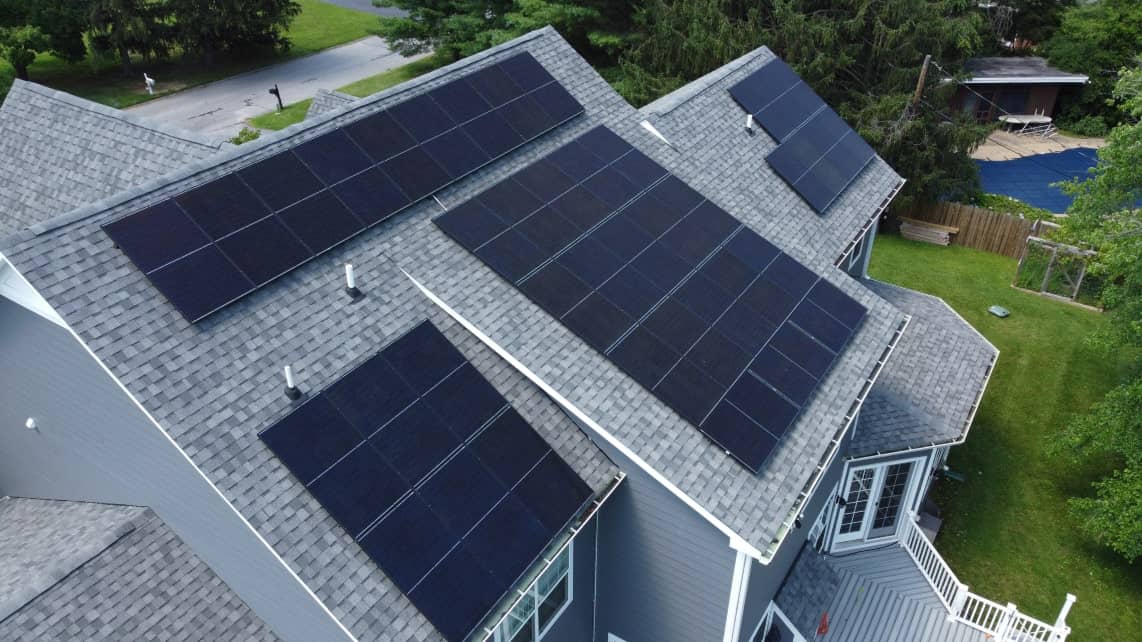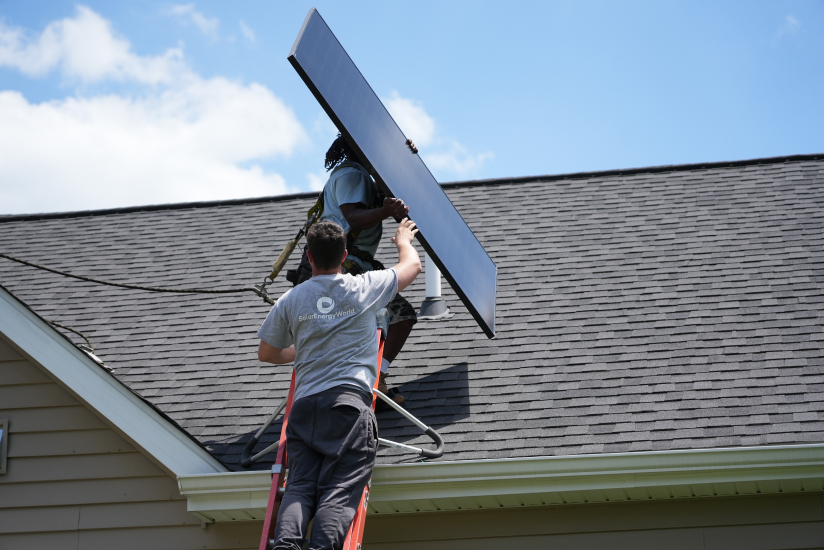Article
The Environmental Impact of Going Solar in Delaware

Solar energy in Delaware isn’t just about the promise of reduced electricity bills; it brings forth a slew of environmental advantages. From significantly cutting greenhouse gas emissions to conserving invaluable natural resources, the impact is both profound and localized.
The First State has witnessed a considerable surge in its solar ventures, all thanks to the plummeting costs and robust affordability of solar energy in Delaware. But beyond the attractive potential cost savings and homeowner incentives, what truly sets solar energy apart is its profound positive environmental impact.
This guide walks you through the basics of solar energy, its environmental footprint in Delaware, and addresses some common misconceptions. Dive in and uncover the compelling reasons that make solar energy a bright investment for Delaware’s future.
Exploring the Basics of Solar Energy
The magic of solar energy lies in its simplicity: converting sunlight directly into electricity. Let’s break it down.
- How Solar Panels Work: Solar panels consist of solar cells, mainly made from silicon. These cells have two layers with differing electron roles. Sunlight, composed of photons, interacts with these layers, releasing electrons.
- Converting Sunlight to Electricity: The movement of these freed electrons creates an electrical current. Initially, this is in direct current (DC) form. An inverter in the solar system then transforms this DC into the alternating current (AC) that powers our homes.
In short, sunlight’s touch on a panel sets off a sequence, leading to eco-friendly power for our homes.
The Environmental Impact of Going Solar in Delaware
Solar energy doesn’t just promise reduced electricity bills; it brings forth a plethora of environmental advantages. From drastically lowering greenhouse gas emissions to conserving invaluable natural resources, the impact is profound. Let’s explore these benefits in depth.
Reduction in greenhouse gas emissions
In Delaware, like many states, burning fossil fuels for electricity releases harmful greenhouse gases. These culprits, primarily:
- Carbon dioxide
- Methane
- Nitrous oxide
Act as thermal blankets, trapping heat and escalating global warming, which can have dire implications, like rising sea levels – a significant concern for Delaware’s coastal communities.
Solar panels, however, bring a refreshing change. Generating electricity directly from sunlight, they release no greenhouse gasses. As Delaware increasingly turns towards solar energy, this move signifies a major stride towards a healthier local environment.
Decrease in water usage in electricity generation
Water is the lifeblood of any ecosystem. However, conventional power generation in Delaware and beyond can be water-guzzling. Traditional power plants, especially coal-fired and natural gas ones, need vast amounts of water for cooling, which often puts stress on Delaware’s freshwater resources.
Enter solar panels. These miraculous devices produce electricity with minimal water involvement. Adopting solar energy in Delaware means not just harnessing sunlight, but actively participating in the conservation of our cherished water bodies.
Conservation of non-renewable resources
Delaware, though small, isn’t exempt from the repercussions of non-renewable power sources. Resources such as coal, oil, and natural gas have finite reserves and leave environmental footprints from emissions to habitat disturbances. Solar energy in Delaware, by contrast, celebrates the sun—a ceaseless and generous energy donor. Adopting solar ensures that the state’s energy consumption isn’t at the expense of the Earth’s limited resources.
Embracing solar energy isn’t just an energy choice for Delaware—it’s a testament to the state’s resolve to protect its unique environment and pledge a cleaner future for its residents.
Understanding the Sustainability of Solar Panels
Solar panels have become increasingly popular in Delaware households, and it’s not just because of their eco-friendliness. They also rank highly in terms of sustainability. With their durability, minimal maintenance requirements, and recyclability, solar panels stand out as an exemplary eco-friendly choice.
Solar Panel Lifespan and Maintenance
Solar panels are not just a short-term solution. Built with resilience in mind, they offer an impressive lifespan:
- Durability: Most solar panels come with a warranty that guarantees about 80% performance even after 25 years. With proper care, they can efficiently function up to 30 years, and sometimes even beyond.
- Maintenance: Unlike more intricate machinery, solar panels have no moving parts, which reduces wear and tear. Basic maintenance primarily involves keeping them clean. Dust and debris can block sunlight, decreasing efficiency. Therefore, occasional cleaning, especially after dust storms or in pollen-heavy seasons, ensures they operate at peak performance. Furthermore, periodic checks by professionals can identify and rectify any potential issues, further extending the panel’s life.
A Circular Approach to Recycling Solar Panels
As solar panels become a staple in global energy solutions, managing their end-of-life becomes crucial. Thankfully, solar panels are designed with recycling in mind:
- Component Recovery: Once a solar panel’s effective life concludes, it doesn’t mean the end of its utility. Upwards of 90% of a panel’s components, including precious metals like silver and aluminum, can be reclaimed.
- Glass and Plastic Reuse: The majority of a solar panel is made up of glass, which can be recycled and used in new products. Similarly, the plastic components can be repurposed, ensuring minimal wastage.
- Eco-friendly Disposal: While the majority of a panel is recyclable, any non-recoverable components are disposed of responsibly, adhering to environmental guidelines.
The recycling process not only prevents unnecessary landfill accumulation but also supports a circular economy. This reiterates the essence of solar energy: a sustainable, eco-conscious choice from production to disposal.
Adopting solar panels is more than just a step towards clean energy; it’s a holistic approach to environmental responsibility. From their inception to their eventual recycling, solar panels embody the principles of sustainability and environmental stewardship.
The Positive Environmental Impacts Beyond Delaware
Delaware’s enthusiastic shift towards solar energy has implications that reverberate far beyond its state lines. While it’s crucial to recognize the local benefits, it’s equally vital to see how Delaware’s solar initiatives are setting a benchmark on the global stage.
Delaware’s Position in the Larger Environmental Landscape
Nestled in the US Northeast, Delaware isn’t just another state making energy choices; it’s a trendsetter in green energy transitions. As the First State embraces solar power, its decisions send ripples throughout the region, offering a roadmap for other states to follow.
It’s a domino effect: every solar panel installation in Delaware directly reduces dependence on fossil fuels, and in the process, cuts down on greenhouse gas emissions. But there’s an indirect impact too.
As more states and nations observe Delaware’s successes, they’re encouraged to explore and invest in solar power themselves. Thus, the state’s commitment doesn’t just benefit its residents—it paves the way for a global community united in the pursuit of a sustainable future.
Through its proactive steps, Delaware not only benefits its environment and economy but also becomes a beacon for global sustainability endeavors, proving that impactful change often starts at home.
Your Role in Promoting a Greener Delaware
Embracing solar energy in Delaware isn’t just a personal decision—it’s a collective movement towards a sustainable future. When individual homeowners opt for solar, they’re not only reducing their carbon footprint but setting a precedent for the community. Every solar panel installed signifies a step towards a greener, more environmentally conscious Delaware.
The transformative power of solar isn’t limited to the state’s boundaries. The positive ripples of choosing solar energy extend far beyond, complementing the global pursuit of environmental sustainability. So, whether it’s the allure of long-term savings or the ambition of contributing to a cleaner planet, remember that solar energy in Delaware is both a symbol and a catalyst of eco-positive change.
The choice is yours: be a part of the solution, advocate for solar, and play your part in ensuring a brighter, more sustainable future for Delaware and the world. Talk to a solar expert today to learn more about installing solar panels on your home!
Want a Free Solar Estimate?
Fill out the form to get started today.


